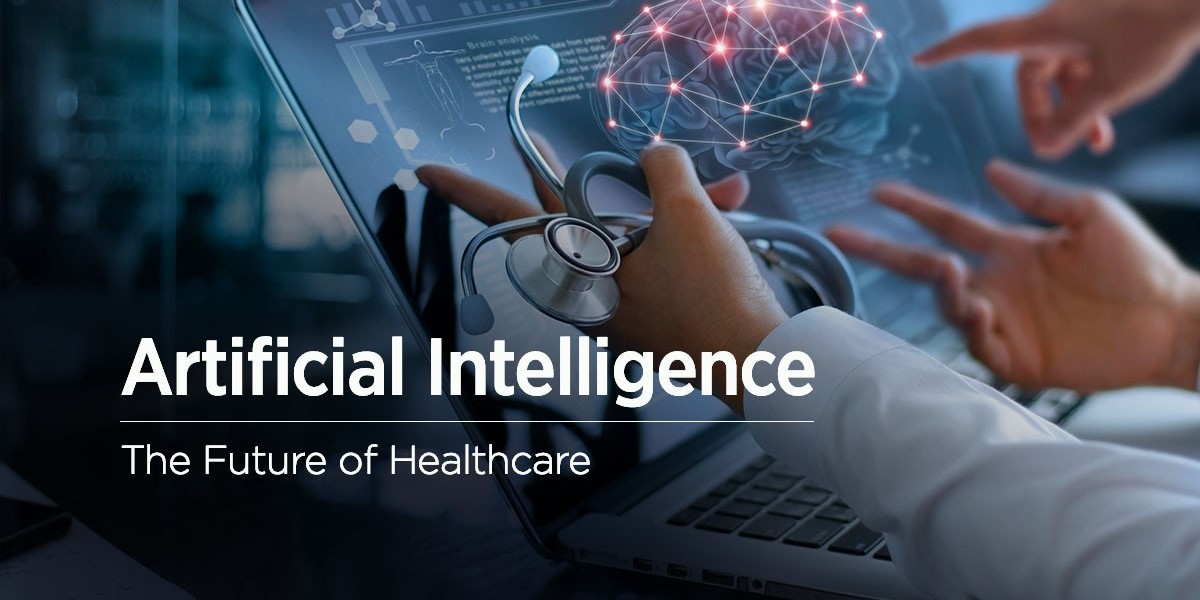In recent years, artificial intelligence (AI) has emerged as a powerful tool in healthcare, revolutionizing the way medical professionals diagnose, treat, and manage patient care. With its ability to analyze vast amounts of data, identify patterns, and make predictions, AI holds immense potential to improve patient outcomes, increase efficiency, and reduce healthcare costs. In this guest blog, we'll explore the impact of artificial intelligence in healthcare, highlighting its key applications, benefits, and challenges.
The Rise of Artificial Intelligence in Healthcare:
Artificial intelligence refers to the simulation of human intelligence by machines, enabling them to perform tasks that typically require human intelligence, such as learning, reasoning, and problem-solving. In healthcare, AI has become increasingly prevalent across various domains, including medical imaging, drug discovery, clinical decision support, and personalized medicine.
Key Applications of Artificial Intelligence in Healthcare:
Medical Imaging: AI-powered medical imaging techniques, such as computerized tomography (CT), magnetic resonance imaging (MRI), and X-ray, can analyze images with remarkable accuracy and speed. AI algorithms can detect abnormalities, tumors, and other medical conditions in images, assisting radiologists in diagnosis and treatment planning.
Clinical Decision Support: AI-based clinical decision support systems leverage patient data, medical literature, and clinical guidelines to assist healthcare providers in making informed decisions about diagnosis, treatment, and patient management. These systems can provide recommendations, alerts, and risk assessments tailored to individual patient characteristics and medical history.
Drug Discovery and Development: AI is revolutionizing the drug discovery process by accelerating the identification of potential drug candidates, predicting their efficacy and safety profiles, and optimizing treatment regimens. AI algorithms can analyze biological data, molecular structures, and clinical trial results to identify novel drug targets and streamline the drug development pipeline.
Predictive Analytics: AI-powered predictive analytics models analyze patient data, such as electronic health records (EHRs), genomic information, and wearable device data, to identify patterns and trends that may indicate future health outcomes or disease progression. These models can predict the risk of developing certain conditions, anticipate complications, and guide preventive interventions.
Personalized Medicine: AI enables personalized medicine approaches by tailoring treatments and interventions to individual patient characteristics, preferences, and genetic profiles. AI algorithms can analyze patient data to identify optimal treatment options, predict treatment response, and optimize therapy regimens for better patient outcomes.
Benefits of Artificial Intelligence in Healthcare:
Improved Diagnostic Accuracy: AI algorithms can analyze medical images, laboratory results, and patient data with unparalleled accuracy and consistency, reducing the risk of human error and improving diagnostic accuracy. This enables earlier detection of medical conditions, leading to timely interventions and improved patient outcomes.
Enhanced Efficiency and Productivity: AI-powered tools and systems streamline healthcare workflows, automate routine tasks, and prioritize clinical activities, allowing healthcare providers to focus their time and expertise where it is most needed. This improves efficiency, reduces administrative burdens, and increases productivity across the healthcare continuum.
Cost Reduction: AI-driven interventions, such as predictive analytics and personalized medicine approaches, can help healthcare organizations optimize resource allocation, reduce unnecessary tests and procedures, and prevent costly complications. This leads to significant cost savings for healthcare payers, providers, and patients alike.
Access to Care: AI-enabled telemedicine platforms and virtual care solutions expand access to healthcare services for patients in underserved or remote areas, overcoming geographical barriers and improving healthcare equity. Patients can receive timely consultations, diagnoses, and treatments from anywhere with an internet connection, reducing the need for in-person visits and travel.
Advancements in Research and Innovation: AI accelerates medical research and innovation by enabling the analysis of vast amounts of biomedical data, uncovering new insights into disease mechanisms, and identifying potential therapeutic targets. This drives advancements in drug discovery, precision medicine, and personalized healthcare, paving the way for more effective treatments and interventions.
Challenges and Considerations:
While the potential benefits of AI in healthcare are vast, several challenges and considerations must be addressed to realize its full potential:
Data Privacy and Security: AI relies on access to large volumes of patient data, raising concerns about data privacy, security, and confidentiality. Healthcare organizations must implement robust data protection measures, compliance frameworks, and encryption protocols to safeguard patient information and mitigate cybersecurity risks.
Algorithm Bias and Fairness: AI algorithms may exhibit bias or disparities in their predictions and recommendations, leading to inequities in healthcare delivery and outcomes. It is essential to address algorithmic bias through rigorous validation, transparency, and fairness assessments to ensure equitable access to care for all patient populations.
Regulatory and Ethical Considerations: The use of AI in healthcare raises complex regulatory and ethical considerations related to data governance, patient consent, liability, and accountability. Healthcare organizations must navigate regulatory frameworks, ethical guidelines, and best practices to ensure responsible and ethical use of AI technologies.
Integration and Interoperability: AI systems must be seamlessly integrated with existing healthcare IT infrastructure, EHR systems, and clinical workflows to maximize their impact and usability. Achieving interoperability and data exchange standards is critical for facilitating information sharing, care coordination, and continuity of care across different healthcare settings.
Provider Training and Adoption: Healthcare providers require training, education, and support to effectively utilize AI technologies in clinical practice. Investing in provider training programs, continuing education initiatives, and user-friendly interfaces is essential for promoting widespread adoption and acceptance of AI-driven solutions among healthcare professionals.
Conclusion:
In conclusion, artificial intelligence has the potential to revolutionize healthcare delivery by improving diagnostic accuracy, enhancing efficiency, and personalizing patient care. From medical imaging and clinical decision support to drug discovery and predictive analytics, AI-powered solutions offer a wide range of benefits that can transform the healthcare landscape for patients, providers, and healthcare organizations alike.
By harnessing the power of artificial intelligence and addressing key challenges and considerations, we can unlock new opportunities for innovation, collaboration, and improvement in healthcare. As AI continues to evolve and mature, it will play an increasingly important role in shaping the future of healthcare, driving advancements in research, clinical practice, and patient outcomes for years to come.









